The establishment of Pakistan brought forth a nation with diverse sects and religions, historically portrayed as being treated with respect. However, the reality has often diverged from this ideal. There have been many instances of violence against religious minorities.
The Hindu minority, which is small and continuously diminishing, has constantly been subjected to coerced conversions and abductions, often demanding ransom. Similarly, Pakistani Christians are considered a remnant of the colonial past and are frequently viewed with suspicion and linked to the U.S. war on terror.
The notorious “Blasphemy Law” in Pakistan has consistently singled out religious minorities. Asia Bibi, a financially disadvantaged Christian woman hailing from Punjab, became the first female in Pakistan’s history to face charges of blasphemy and receive a death sentence.
The overuse and abuse of Pakistan’s blasphemy laws have garnered widespread criticism. The legislation is imprecise, leading to occasional baseless allegations to resolve personal or political disputes. The imposition of compulsory capital punishment for blasphemy, as stipulated in Section 295-C, has garnered universal criticism due to its severity. Islamic factions have vehemently, and sometimes violently, opposed actions they perceive as blasphemous. Moreover, reasonably socially progressive parties now maintain a firm position against blasphemy. Salmaan Taseer, a well-known political figure and former governor of Punjab province, was assassinated in 2011 due to his resistance to the blasphemy legislation. Despite the absence of any explicitly sacrilegious statements, radical religious leaders argued that opposing blasphemy legislation could be interpreted as endorsing blasphemy itself, making the politician subject to death.
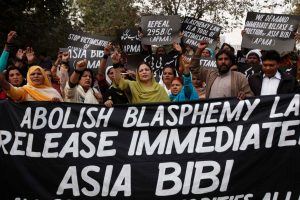
Pakistan’s constitution addresses the concept of freedom in several ways. Article 20 of the constitution ensures the right to practice and manage religious affairs without interference. Individuals can express, observe, and advocate for their religious beliefs openly and without restriction, while adhering to legal and ethical obligations. The extent of this freedom is boundless and can be controlled by the legislation to uphold societal harmony and propriety. Section (b) pertains to the entitlements of religious denominations and sects to construct, sustain, and oversee their religious establishments. Religious organizations can operate their institutions without undue intervention, provided they adhere to legal regulations.
Article 22 provides safeguards for religious and associated educational establishments. According to Section 1 of the article, students can refuse participation in religious rites, education, or worship of a different faith. As stated in Subsection (2), religious groups are exempt from community-based taxation, which guarantees religious institutions equitable financial treatment. According to Article 22 (3), religious organizations can offer religious instruction within their educational institutions. Publicly sponsored educational institutions are prohibited from denying admittance to any person based on race, religion, caste, or birthplace, which fosters educational inclusivity and mitigates prejudice. Government entities can implement measures to assist socially or educationally disadvantaged groups.
Article 26 forbids the act of discriminating against individuals in terms of their access to public facilities. Article 26(1) forbids the act of treating people unfairly on the grounds of their race, religion, caste, sex, or place of birth in areas that are not related to religious activities. Section 27(1) of the law prohibits discrimination against any eligible citizen of Pakistan based on race, religion, caste, sex, residence, or place of birth regarding their appointment in the service of Pakistan. This ensures fair and equal access to public services.
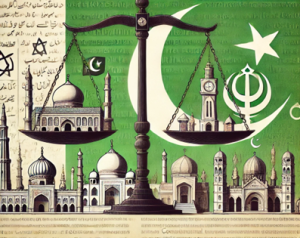
While these articles exist in the constitution, they are not implemented. For example, an instance of coerced conversion involving a young Hindu woman that received significant media attention was the case of Rinkel Kumari. She was forcibly abducted with the assistance of a legislator from the ruling party and compelled to enter into a marriage and undergo a conversion to Islam. The case outcome was that the legislator was not held accountable for his actions. However, Pakistan has implemented legal measures to combat acts of violence, terrorism, and offenses driven by religious extremism.
The Pakistan Penal Code deals explicitly with crimes committed against individuals and property. Acts such as assault, murder, or property damage motivated by religious discrimination can result in prosecution under applicable provisions. Section 295-A specifically addresses intentional actions to provoke religious feelings, while Section 298 concerns the deliberate use of language to harm religious beliefs. Although there may not be specific legislation targeting hate crimes, the current legal system can be employed to prosecute persons engaged in attacks motivated by religious prejudice. Prosecutors can contend that animosity towards a particular religious faction drives these offenses. People should be severely punished to instill fear in them.

The Ahmadiyya sect, originating in the late 19th century, is deemed non-Muslim by the Pakistani government because it adheres to an ideology that opposes the prevailing Islamic beliefs. In a constitutional amendment in 1974, Ahmadis were officially designated as “non-Muslim.” Consequently, other Pakistani Muslims view Ahmadis as heretical liberals. It is illegal for Ahmadis to identify themselves as “Muslim” or to use the term “mosque” for their place of worship. They are even prohibited from using the Islamic greeting, “As-salāmu ʿalaykum.”
Ahmadis are often subjected to violence by radical Sunni groups, who specifically target them at their mosques and in public locations. The Tehreek-e-Taliban Pakistan routinely releases comments in which they express “congratulations” to Pakistanis for these attacks, labeling the Ahmadiyya and Shia groups as “the opponents of Islam and the general public.” Following any instance of violence targeting religious minorities, the Taliban and Lashkar-e-Jhangvi boldly claim responsibility without any apprehension of being penalized. This demonstrates the absence of fear among the individuals.
As citizens of Pakistan, we are indirectly involved in the violence against the Ahmadis because we remain silent when a particular segment of society is being discriminated against, significantly if it does not affect the majority. Similar to the situation in Afghanistan, it is easier for us to ignore the issue rather than advocate for the oppressed party. By being passive observers, we are contributing to the unjust oppression occurring here. Human rights organizations, both domestic and international, have made efforts to raise awareness about these problems and promote the safeguarding of religious minorities, such as the Ahmadiyya community. Nevertheless, the current scenario continues to present difficulties, with the implementation of legal measures to safeguard religious freedom and the rights of minority groups in Pakistan as they progress at a sluggish pace.








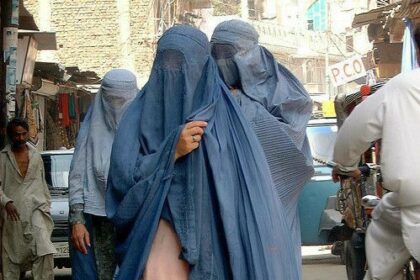

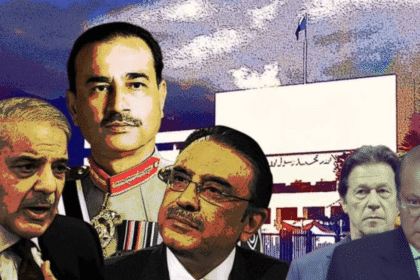
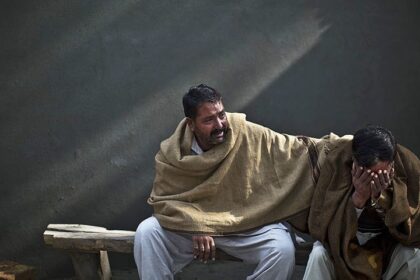





very insightful MA